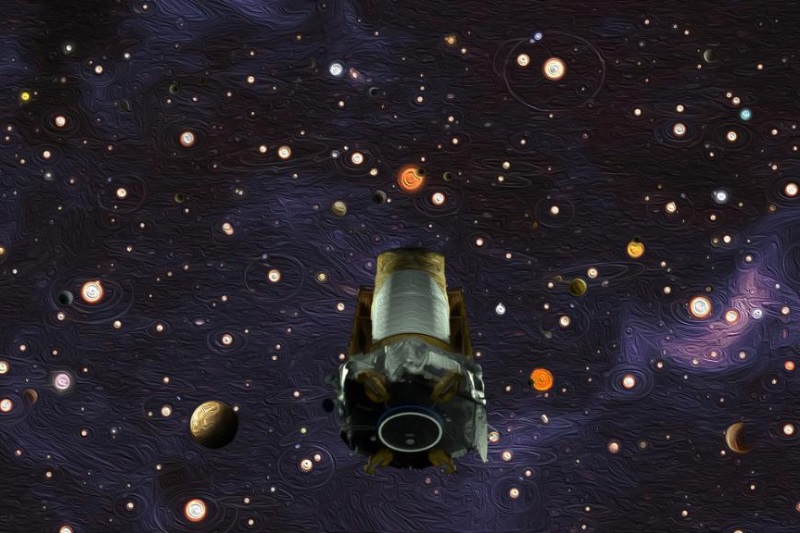- Sponsored -
NASA bids farewell to revolutionary planet discoverer – Kepler Space Telescope

On Tuesday afternoon, NASA officially bid farewell to the Kepler Space Telescope, a pioneering spacecraft that helped discover thousands of planets beyond our Solar System. After years of service that extended long beyond its initial four-year mission, the spacecraft finally ran out of fuel.
- Sponsored -
In a statement, NASA said, “Kepler space telescope has run out of fuel needed for further science operations, bringing an end to a nine-year mission in which it discovered over 2,600 intriguing exoplanets, some of which may hold life.”
“Data collected from Kepler’s deep space missions indicates our sky is filled with billions of hidden planets – more than the stars,” NASA added. It further said, “The unmanned space telescope, which launched in 2009, leaves a legacy of more than 2,600 planet discoveries from outside our solar system, many of which could be promising places for life.”
Thomas Zurbuchen, associate administrator of NASA’s Science Mission Directorate, said, “As NASA’s first planet-hunting mission, Kepler has wildly exceeded all our expectations and paved the way for our exploration and search for life in the solar system and beyond.” “Not only did it show us how many planets could be out there, it sparked an entirely new and robust field of research that has taken the science community by storm,” Zurbuchen added.
After 9 years in space collecting data that revealed our night sky to be filled with billions of hidden worlds, @NASA is retiring the @NASAKepler space telescope. Hear from mission experts now at https://t.co/APevDG8HIN. Have ?s Use #askNASA. Details: https://t.co/1ceSOWhQsn pic.twitter.com/2azKdTxCcj
— NASA Kepler and K2 (@NASAKepler) October 30, 2018
He further asserted that its discoveries have shed a new light on our place in the universe and illuminated the tantalising mysteries and possibilities among the stars. “Kepler has opened our eyes to the diversity of planets that exist in our galaxy,” mission scientists noted.
The time has come. As expected, @NASAKepler has run out of fuel. Throughout its lifetime, it has observed 500,000 stars & galaxies & has discovered 2,600+ planets beyond our solar system. Thank you for changing our view of the universe! https://t.co/tNnzdPlMkG
— Thomas Zurbuchen (@Dr_ThomasZ) October 30, 2018
Launched on March 6, 2009, the Kepler space telescope combined cutting-edge techniques in measuring stellar brightness with the largest digital camera outfitted for outer space observations at that time.
Originally positioned to stare continuously at 150,000 stars in one star-studded patch of the sky in the constellation Cygnus, Kepler took the first survey of planets in our galaxy and became the agency’s first mission to detect Earth-size planets in the habitable zones of their stars.
Also Read: NASA launches website to showcase how its research impacts everyday life
- Sponsored -
